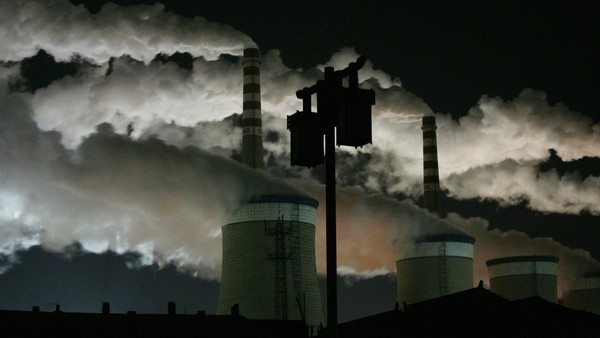ExxonMobil and Shell would cease to exist in their current forms
in 35 years under measures UN negotiators are considering for a legally binding
global climate
pact to be sealed in Paris next year.
The oil and gas these companies produce, and the coal mined by
groups such as Rio Tinto, would have to be phased out by 2050 in one proposal
at UN climate talks in Lima this week, which aim to smooth a path to the Paris
deal.
Another option would still allow such fossil fuels to be used, but
only if countries could ensure “net zero emissions by 2050”.
In other words, all the warming carbon dioxide emissions produced
when fossil fuels are burnt would have to be stored underground or offset by
steps such as planting vast numbers of trees.
Shell declined to respond directly but pointed to a speech by
chief executive Ben van Beurden arguing “we need to temper our expectations of
a zero-carbon future”, because demand for energy is so strong and renewable
energy sources were unlikely to be a realistic alternative to fossil fuels for
many decades.
ExxonMobil pointed to similar arguments on the company’s website.
Critics have accused conventional energy companies of complacency
in the face of the risks to their business model from a future climate deal.
Lord Browne, the former boss of BP, said last month that they were ignoring the
“existential threat” climate change posed to the industry.
Meanwhile, the BANK of
England is assessing the risks fossil fuel companies might pose to
FINANCIAL stability if the world’s
proven coal, oil and gas reserves turned out to be “unburnable”.
But the idea being discussed in Lima of “full decarbonisation by
2050” has raised eyebrows among energy industry and business analysts.
“It’s a deeply, deeply challenging target,” said Brad Page, chief
executive of the Global Carbon Capture and Storage Institute, which promotes
the still small number of projects that can trap and store carbon dioxide from
leading emissions sources, such as power stations and industrial plants.
No country has ever consistently driven down its carbon pollution
at the pace required to meet such a goal, said Jonathan Grant, director of
climate change at PwC, the professional services group.
“You can understand why countries are proposing it, but that
doesn’t make it any more feasible,” he said.
Still, the proposals underscore the influence of an extensive
assessment issued in stages over the past 15 months by scientists in the UN’s
Intergovernmental Panel on Climate Change, the world’s leading global warming
authority.
In a departure from previous studies, the 26-year-old panel’s
latest report says emissions will have to fall to near zero eventually if the
world were to avoid more than 2C of warming from pre-industrial times, a
threshold the IPCC says it could be risky to breach.
“It’s really exciting to
see countries grappling with the honest picture of the magnitude of the
challenge,” said Dr Chris Field, a co-chair of the IPCC report.
The 2050 decarbonisation options for the Paris deal “are
consistent with the 2C target”, he said.
The proposals are in a 23-page paper being discussed in Lima. The
paper contains a number of other possible components of the Paris agreement,
which is due to be negotiated in more detail next year.
Under other options being considered, oil exports from developing
countries to wealthy nations would be taxed and wealthy countries would have to
compensate people suffering from the worst impacts of climate change, such as
those forced to migrate from low-lying islands because of rising sea levels.
A plan to make rich countries devote 1 per cent of gross domestic
product a year from 2020 to help poorer people deal with global warming is also
included.
These options are unlikely to make it into the final agreement,
but more than 48 countries want a long-term plan for phasing out emissions
included in the Paris treaty, according to the Track 0 campaign group, which
lobbies for action on climate change.
“This will be the big battle in Paris,” said Liz Gallagher of E3G,
an environmental think-tank.
She said a goal for the complete elimination of emissions was
unlikely, because it would make activities such as flying impossible, but a
long-term net-zero emissions target was feasible.

No comments:
Post a Comment